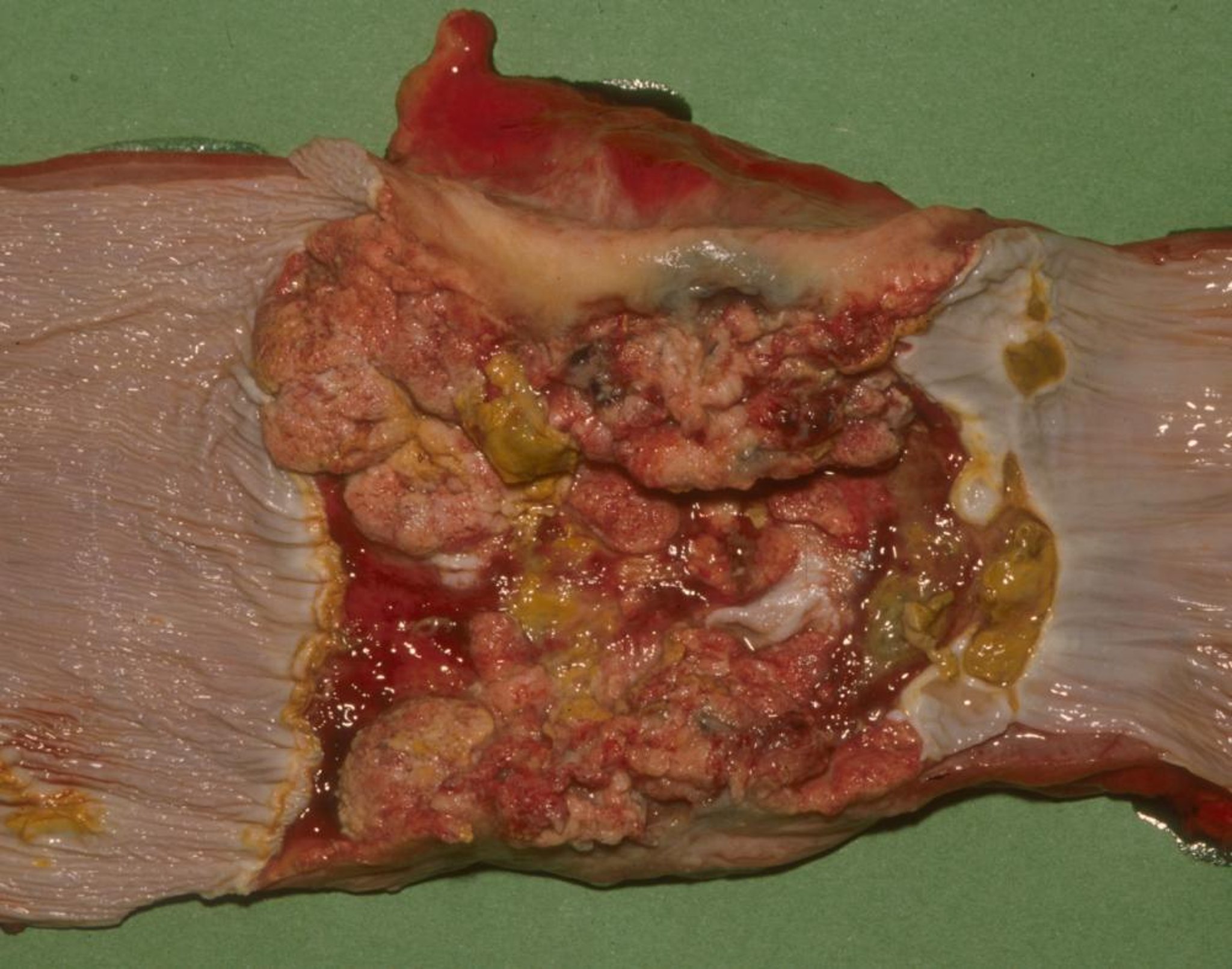Courtesy of Dr Jan Hawkins, Purdue University.
The most common esophageal neoplasia in horses is squamous cell carcinoma, which carries a guarded prognosis. Focal neoplastic masses can be managed with esophageal resection and anastomosis. Unfortunately, most cases of squamous cell carcinoma are not amenable to surgery, and euthanasia should be considered.
In ruminants, bovine viral papillomas (ie, warts) occasionally develop in the cranial esophagus and pharynx and, in the presence of other agents, may result in development of esophageal carcinoma. In some areas of the world (eg, Scotland and South America), such disease may follow ingestion of natural bracken fern toxins. There is also a causal relationship between such bracken fern tumors and bladder cancers in cattle.




